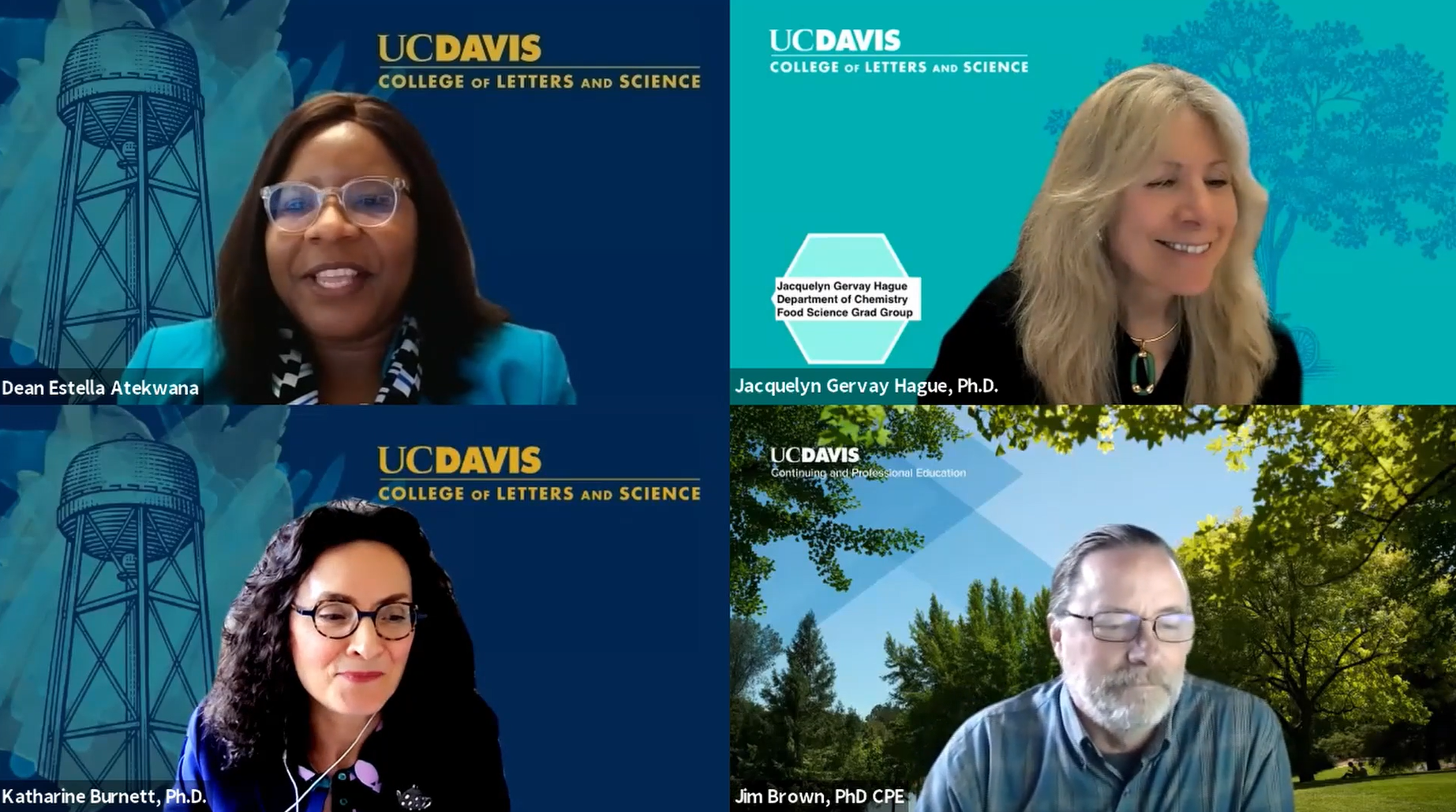
Faculty experts explain the study of global tea culture and science
June 21, 2022 — From Turkey to Japan to many other countries, tea is a valuable product grown all over the world. Although true tea comes from the Camellia sinensis plant, its sensitivity to its surrounding environment leads to many varieties. Currently, tea research is largely under the radar, which is why the UC Davis Global Tea Initiative (GTI) was founded.
GTI is the first and only group dedicated to promoting research and teaching in tea culture and science. The initiative provides faculty with opportunities to set research interests and collaborate with members of the tea industry. It also advances the research of tea through partnerships with institutes in countries like Taiwan, Japan, and Kenya. Through GTI, UC Davis hopes to bring attention to tea’s effect on culture, society, science and health.

During a virtual event, UC Davis faculty experts, including Dean of the College of Letters and Science Estella Atekwana, who moderated the discussion, shared the art and culture of tea and ways the GTI Professional Tea Program is helping industry. This Q&A is adapted from the discussions, part of an ongoing virtual event series called Plugged in where UC Davis leaders address the most pressing issues of our time.
How did tea enter into different societies and civilizations?
Katharine Burnett Ph.D., founder and director, Global Tea Initiative; professor, Art History: People trade goods and are always looking for opportunities for exchange. Tea is a cash crop that was first grown in the southwest of China and spread across the “tea belt” from Northwest India across to Southern China. By the 7th century it had spread through all of China. Later on in the 16th and 17th century, tea had spread due to demand. People liked it, imported it and wanted more of it.
How is the global tea industry supporting research?
Jacquelyn Gervay-Hague Ph.D., professor, Chemistry and Food Science Graduate Group: Many groups in the industry have their own research enterprises. For example, Japan has a research institution that I’m familiar with in Shizuoka. They teach courses to potential growers and processers of tea. Many of these international institutes of research are partnering with UC Davis in hopes of attracting students to encourage them to pursue careers in the tea industry.
How has the pandemic and climate change affected tea production and supply?
Jim Brown Ph.D., chair of professional studies, UC Davis Continuing and Professional Education: When the pandemic was first announced in March 2020, that’s when the first harvest was going through and it really affected production around the world. While China didn’t see much change, it had a devastating effect in India with the complete shutdown in Darjeeling. In Kenya, they were sitting on a huge inventory of tea that nobody was paying for. With the loss of Indian tea, they actually had a huge benefit in their tea market. Countries like Sri Lanka deemed tea production essential so they kept everything going, which led to a devastating spread of COVID in those countries.
What does the future look like for the Global Tea Initiative and are there tangible ways to support?
Burnett: People are writing all the time from around the world asking if they can come to Davis to study as scholars and as students. To build up our curriculum and to ensure that GTI has longevity, what we need to do is build infrastructure. Things that would be wonderful for support would be endowed professorships across various colleges and schools to ensure there’s some expert always teaching about tea. It would be wonderful to give funds for enhancing curriculum development, to support research of faculty in specific projects and donate funds for an endowed directorship.
As we look forward, we look to you. Explore the many opportunities to join the UC Davis Campaign.
